Research
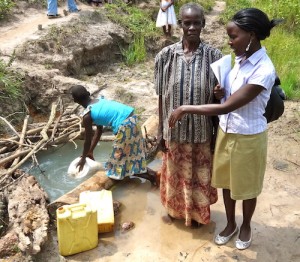
Safe Water/Sanitation & Health Nexus
Central to overcoming the problems of waterborne diseases that cause high mortality and stunting among children are: (i) access to clean drinking water, (ii) improved sanitation systems, (iii) proper hygiene practices to maintain the high quality of clean drinking water. The Safe Water/Sanitation & Health Nexus will focus on:
- developing novel materials and systems for water purification to prevent chemical exposure and waterborne diseases that lead to enteropathy and stunting;
- ensuring water safety through understanding the fundamental process of virus inactivation;
- developing selective sensors for real-time detection of viruses, zoonotic/human pathogens and chemical contaminants;
- understanding the role of human hygiene and agricultural practices on water quality;
- using deep sequencing tools to expand fundamental understanding of human-animal-environment interactions and the design and control of processes for pathogen removal and resource recovery from complex and dynamic sanitation media; and
- ensuring sustainability through regional/local socio-economic implementation strategies.
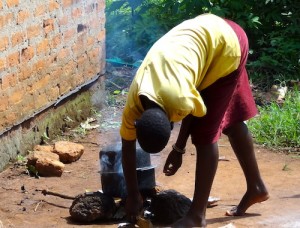
Safe Water/Sanitation & Energy Nexus
Providing new sustainable forms of energy will become a world priority as population growth rates increase and non-renewable resources are depleted. This will generate economic pressures that will force communities to explore new ways to generate energy from existing resources. The Safe Water/Sanitation & Energy Nexus will focus on turning bodily excreta streams from a community burden into a revenue generating resource by developing net energy positive sanitation systems to:
- explore fundamental understanding of the dynamics of microbial population and their function in complex phototrophic and bio-electrochemical systems;
- gain new insights about the metabolome of microorganisms coupled with novel biomolecular techniques for smart multiplex sensors that detect – in real-time – symbiotic activity of beneficial microbial communities, and infectivity and virulence of pathogens;
- develop modular, economically viable anaerobic membrane bioreactors (anMBRs), photo-bioreactors (PBRs), and bio-electrochemical systems;
- explore renewable energy storage and wireless communication systems that enable smart sensors and resilient, decentralized sanitation systems with remote oversight and control;
- increase the understanding of economic and environmental implications of broad development and population growth on the African continent, and the associated urgent need for transformational sanitation systems focusing on renewable resource recovery.
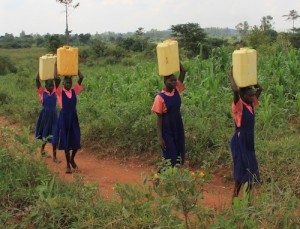
Safe Water/Sanitation & Food Security Nexus
New safe water sources and safe human/animal sanitation practices are critical to ensuring Food Security as water stresses on agriculture grow because of climate change variation, population growth, and water quality degradation. The Water/Sanitation & Food Security Nexus will focus on the development of distributed high volume water purification systems to enable Food Security via:
- safe extraction of nutrients from sewage streams for high-value vegetables;
- control and prevention of environmental toxins (fluoride, arsenic, pathogenic viruses, bacteria and protozoa) from entering the food supply;
- removal of toxins in return flows from large-scale irrigation return flows (salts, nitrogen and pesticides).
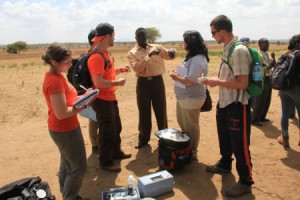
Advancing Science & Technology
The SGWI Center for Advanced Materials for the Purification of Water with Systems (WaterCAMPWS), a National Science Foundation Science and Technology Center. For over 10 years, the Center has been a global leader in developing revolutionary new materials and systems for water purification and advancing the fundamental understanding of the aqueous interface.
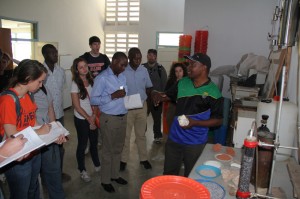
Global Test-Beds & Capacity Building
The SGWI program includes a wide range of industrial partners (from start-up to fortune 500 companies), government agencies (U.S. and Foreign), and non-governmental agencies all focused on finding sustainable safe water and sanitation technologies for the developing world. The goals of the SGWI are to open new micromarkets and global markets for the developed technologies and to leverage the skills of each the implementation partners to see the development of the technologies from bench-top through scale-up and ultimately to market.